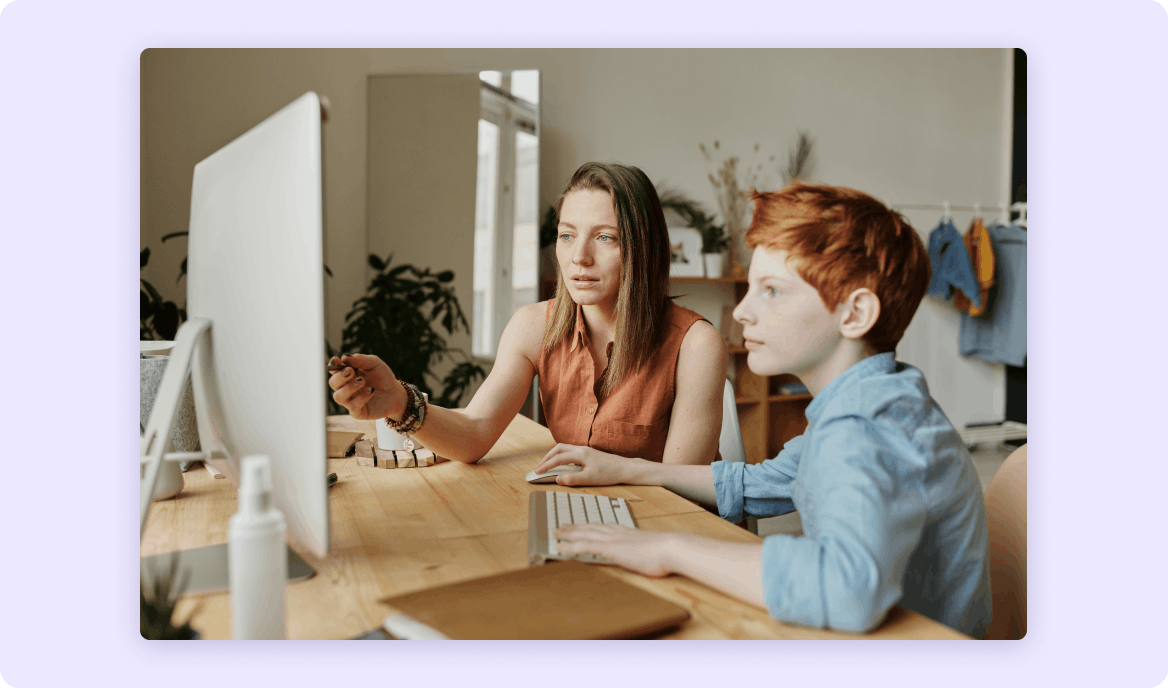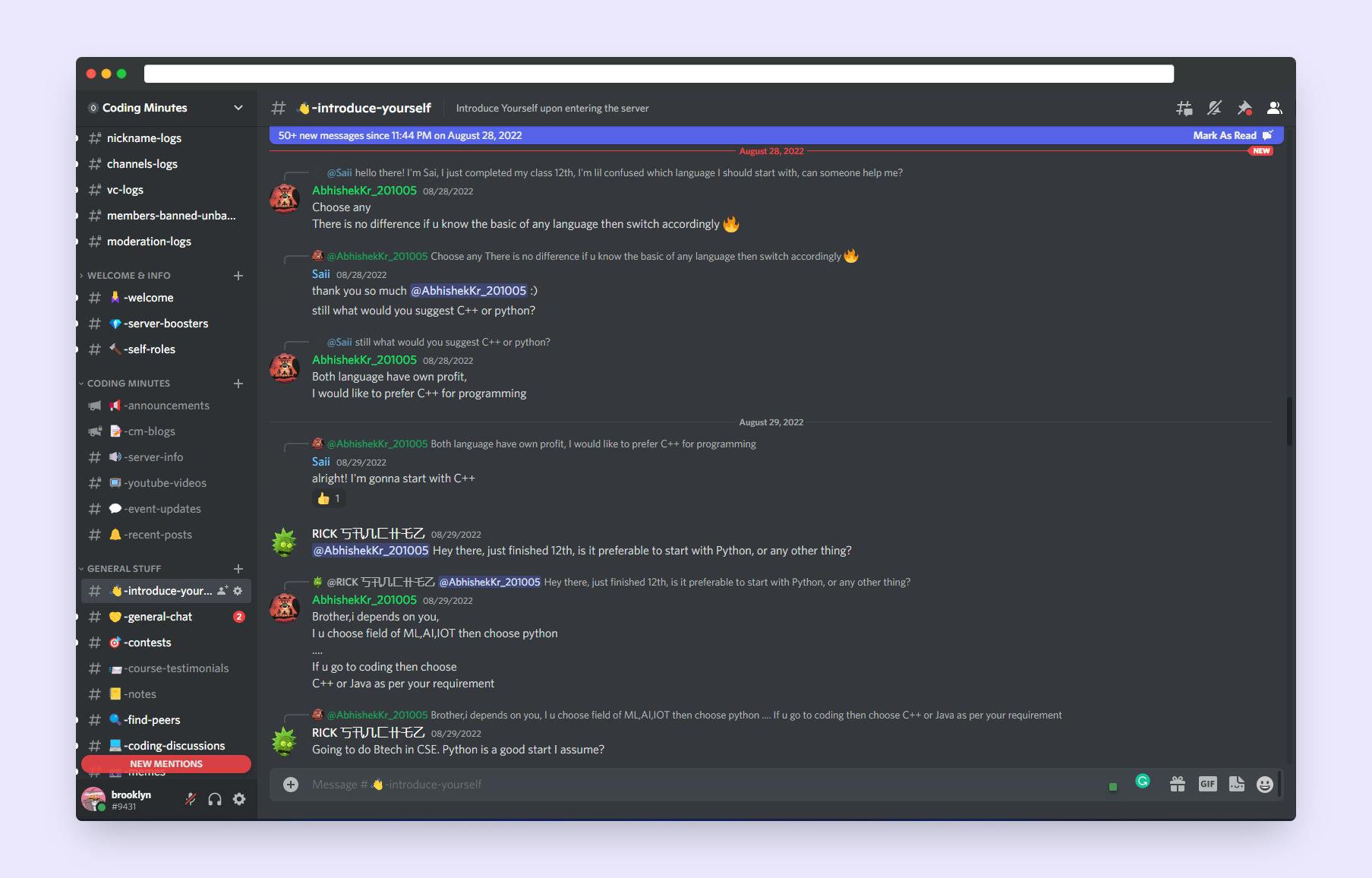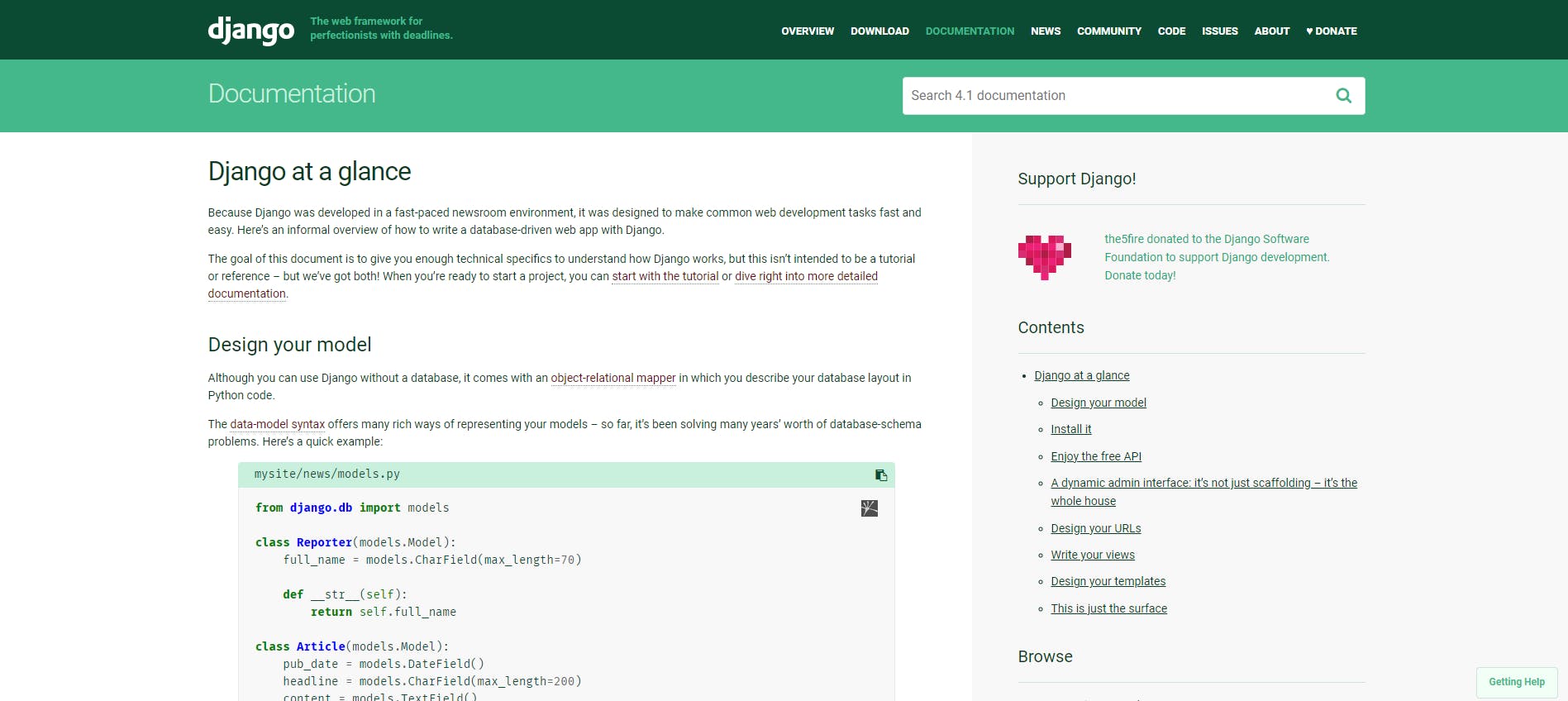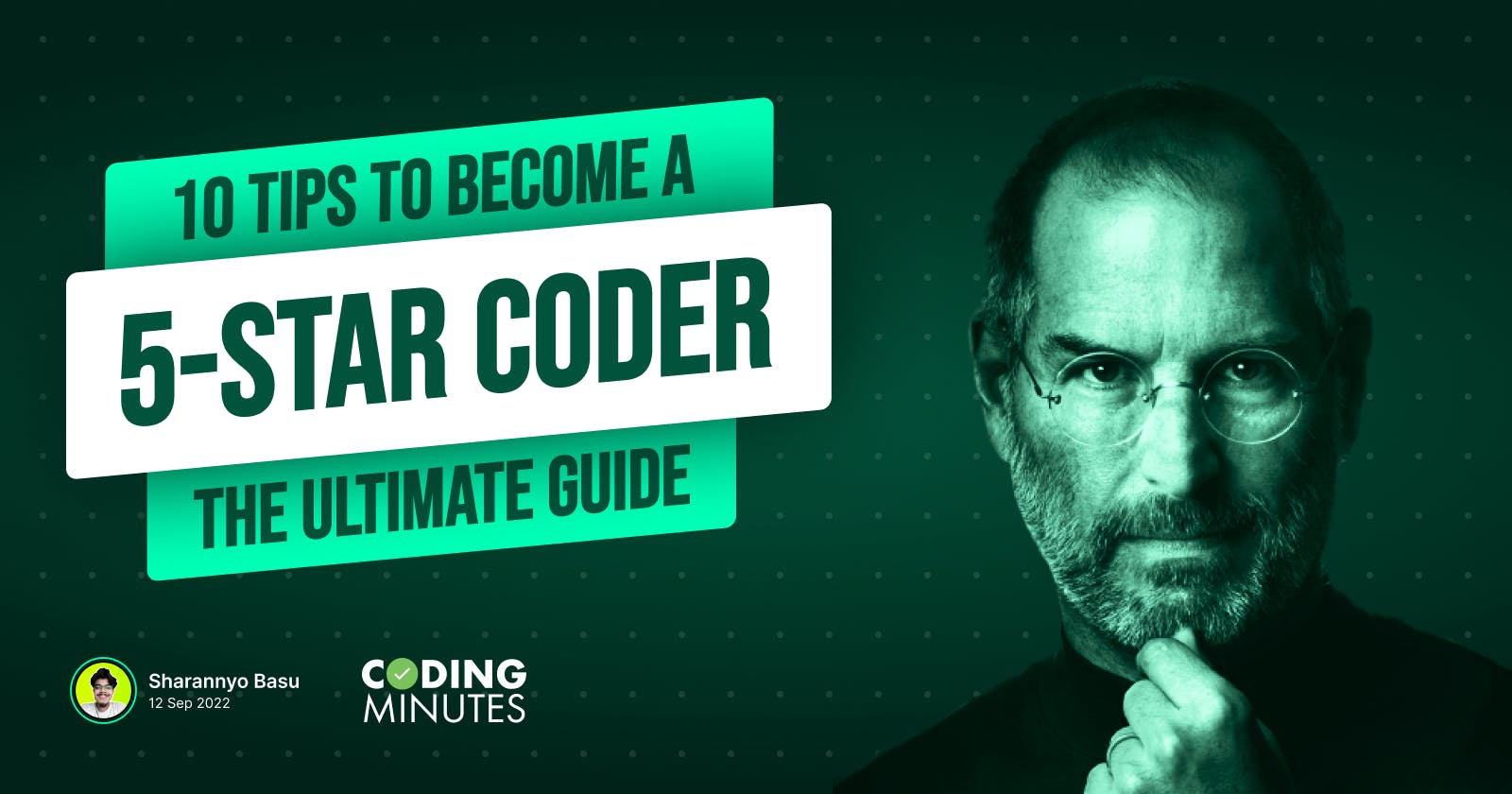If you are serious about becoming a better coder, you wouldn't only just read this article, you’ll do it! Becoming a better coder means constantly striving to improve both your skills and your understanding of the craft. It means writing code and explaining it in such a way that even a layman can understand. It means refusing to accept an outdated or poorly written piece of code as a standard practice.
The truth is, without consistently challenging yourself to achieve new heights of proficiency, you will never become a great coder. If you want to become highly skilled in your craft, then sit back and have a look at these 10 tips...
1. Start with the basics
The biggest of buildings need the strongest of foundations and similarly, to become a skilled coder, you need to understand the basics of programming. Be it a programming language or a web framework or a tool, getting a firm grasp of the building blocks the is absolutely crucial.

Once you have the basics clear, you will be in a much better position to apply the tips and strategies mentioned in the remainder of this article. It’s worth noting that becoming a better coder isn’t limited to learning syntax, algorithms, and data structures. Becoming a better coder also means learning how and when to use the various components of your craft. It means understanding how to apply these techniques effectively in different situations and solve different problems.
2. Get a good editor

You could be the best coder in the world, but if you use a crummy text editor, you’ll never reach your full potential. This is the first thing that most new coders notice; it’s also the easiest thing for them to fix. There are dozens, if not hundreds, of text editors on the market for every computing platform, and finding one that works for you is a matter of personal preference.
Even if you’re coding in a niche language like R, Python, or C, you’ll likely find a text editor that fits your needs. Your editor might not be the best in the world, but it doesn’t have to be; it just has to be good enough to complement your style of coding. The right editor will make you more efficient in your day-to-day coding activities, and that can lead to real productivity gains over time.
3. Find a mentor
At times, you will not be able to understand something. It is normal for us to not understand everything, and this is where you should seek the help of a mentor. I cannot emphasize on this more, but having the right mentor can do wonders for your coding journey.

There are seasoned mentors who are eager to help you improve your skills. Finding the right mentor may take some time, but it’s well worth the effort. A mentor can help you identify weaknesses in your existing skill set and direct you towards new ways of solving a particular problem. A mentor will encourage you to push yourself towards solving new challenges and achieve higher levels of proficiency. Not only that, your mentor has previously experienced the phases through which you are going currently, and who's better than them to help you out?
Go to college, talk to your seniors, build a healthy relationship with them, talk about your learnings and elaborate on why you need their help. People are more than ready to help you, but remember one thing: you have to pick the right person. Choose a senior who is more than willing to help you and who considers your failures and success as his own. If you can't find a good mentor within your campus, create a LinkedIn account and start networking with people who have cracked big companies and are genuinely interested in helping students.
4. Don’t be afraid to ask for feedback.
This is often easier said than done, but don’t be afraid to ask other programmers for feedback on your code. Whether you’re posting a snippet of code on a forum or getting feedback on a larger project, you should always ask other coders for feedback. This is the best way to identify and address any issues in your skillset. Don’t assume that your code is flawless just because you understand what it’s doing.

Even the best coders have room to improve. If you don’t agree with all of the feedback you receive, it’s better to know what other people are thinking than to remain blissfully ignorant.
5. Be willing to learn from your mistakes.
Nobody is perfect, and as a beginner, please don't expect to get everything right at the first attempt. Even if you follow the best practices and receive expert feedback on your code, you are likely to make a mistake somewhere in between. What’s important is that you use these mistakes as learning opportunities and don't commit the same mistakes again. At the same time, you shouldn’t let a mistake hold you back from moving forward. We’re all human and make mistakes, so don’t get too down on yourself when it happens.
You cannot be a great programmer without making mistakes. Even the best programmers in the world have committed thousands of mistakes during their journeys. What mattered is that they learned from them and so should you.
6. Join a coding community

This is one of THE most important points you should remember. Being a part of a coding community gives endless learning resources and paves the way for you to take part in group coding sessions and learn from other aspiring coders having similar goals as yours. Online communities set up a resourceful learning environment where you can discuss a topic with other talented minds. This not only helps you get different perspectives on solving a problem but also helps you to help others and polish your understanding.
Harness the power of community and take your coding skills to the moon! Be a part of our 16,000+ coders family. Join the Coding Minutes Discord Community here
7. Learn to write readable code.
This goes hand in hand with avoiding mistakes. You don’t want to write code that other programmers can’t understand. If your code is unreadable, it will be difficult to maintain and likely be discarded in favour of more readable code in the future. Even if your code works, it could cause problems down the line when another programmer tries to work on your piece of code.
Example of poorly formatted code:
#include <iostream>
using namespace std;
int main()
{ int a=7,b=5;
cout<<"sum"<<a+b; }
Example of a nicely formatted readable code:
#include <iostream>
using namespace std;
int main()
{
int first_number = 7; //first number
int second_number = 5; //second number
int sum = first_number + second_number; //storing addition inside "sum"
cout << "The sum of two numbers is: " << sum; //printing sum
}
Writing readable code is more than just following best practices; it’s also about having a consistent personal style. Whether you prefer a top-down, bottom-up, or data-driven approach, it’s important that every coder has a consistent and readable style across their projects. If you’re working with a team, it’s even more important that everyone uses the same style of code. This is the only way that you can be sure that the code is readable across the board.
8. Start building projects
One of the best ways to become a better coder is to start building projects. There are a few different types of projects you can work on to help improve your skills. You may want to start with an open-source project, or you may want to pick a programming challenge and start by making a mini-project like a calculator or a Hotel Management System.
I have seen many students code an entire project by watching a tutorial and feature it in their resumes. It is actually wrong to show projects in which you have actually copy-pasted the code from the tutorial screen to your editor screen. The key here is to come out of tutorial hell and start building projects on your own by using your own programming skills. The first effort may not bring satisfactory results but this is a stepping stone to building better and more complex projects in the future, which you can genuinely call your own work!
9. Document your code

Hopefully, you’ll never have to go back and modify your early code again. But, if you’re working on a large team or with a large codebase, it’s a very real possibility that you’ll need to go back and modify some of your old code. This is where documentation comes in. No matter how well you write your code now, you may need to go back and modify it in the future. Make sure that you’re leaving enough documentation behind so that not only your colleagues, but a layman can also understand what you did.
10. Level-Up your Communication Skills
Being a good coder not only means writing quality code, but it also means explaining the code to others in a way that everyone understands. Programmers spend only about 25% of their time writing code. The rest is all about communicating with the team.
Programmers solve human problems by writing code, and every step requires good communication in order to deliver an effective solution.
%%[course-card]

